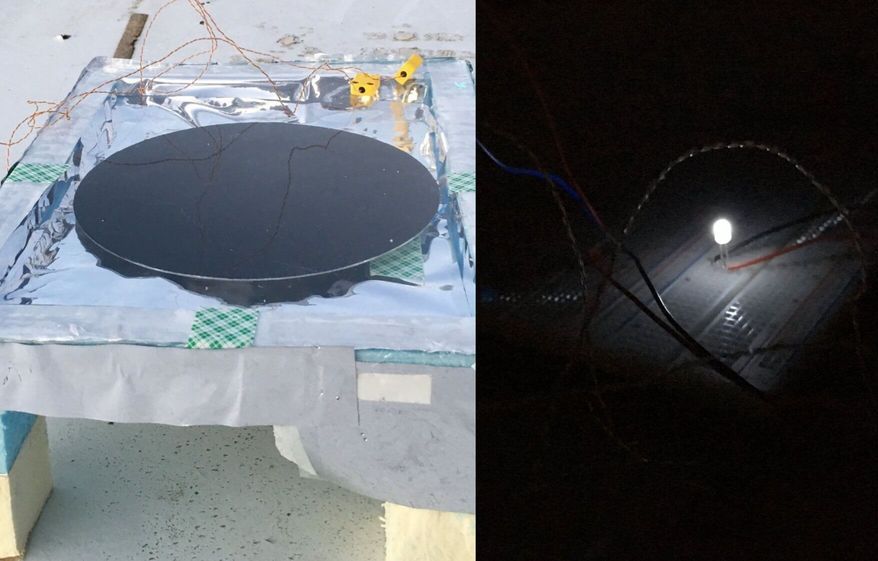There are different kinds of solar panels. The one most typically used is a type that generates electricity from the sun through a physical process called the photo-voltaic (PV) effect – when light exposure on certain materials generates an electric current. Another type generates electricity from heat through thermal processes – when the sun is hotter and Earth is cooler, and the difference in temperature can be converted into usable energy.
That second kind of solar panel is the one that inspired a team of researchers at Stanford University in Palo Alto, California to develop a new system that can harness energy in darkness. It’s based on the concept of using heat to generate energy but an inverse version of the solar panel. While the solar panel uses the heat difference between the sun and Earth with the Earth being the cooler side – their system makes use of the heat difference between the coolness of the night atmosphere and the Earth with the Earth being the hotter side. The study has been published in the scientific journal Joule.
Study author Shanhui Fan, Stanford electrical engineering professor, told Gizmodo:
